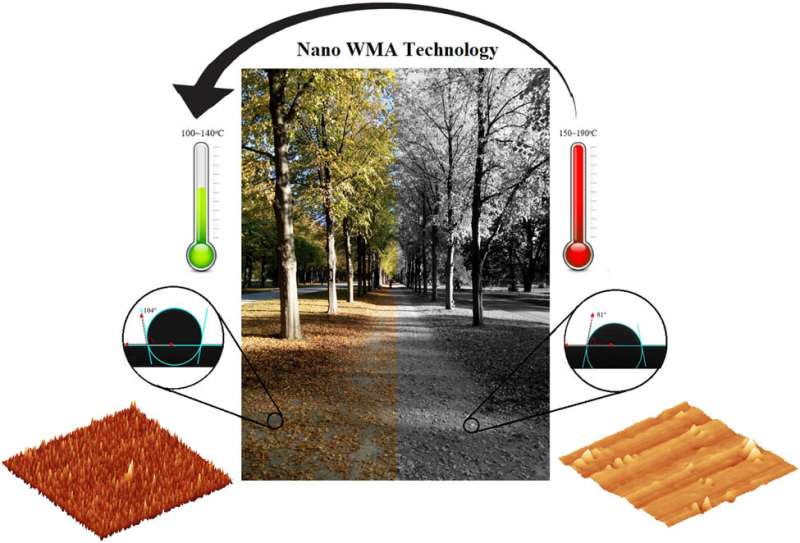Improving asphalt road pavement using engineered nano mineral composites

A novel and eco-friendly nano asphalt binder has been developed by researchers at Swansea University and the Technical University of Braunschweig.
The product generates a new class of warm mix asphalt (WMA) additive that significantly reduces energy consumption while simultaneously minimizing vapors and greenhouse gas emissions during the production of asphalt mixtures when compared to conventional asphalt, it also works effectively at a large scale.
To achieve net-zero carbon emissions, Highways UK is increasing the adoption of WMA as a standard across its supply chain. When compared to conventional hot-mix asphalts, WMA technologies can provide increased efficiency and reduce carbon production, with CO2 reductions of up to 15%. WMAs are produced at temperatures of up to 40°C lower than ordinary asphalt, therefore, switching to them would save roughly 61,000 tons of CO2 each year in the UK, which is the equivalent of reducing 300 million miles of automobile travel.
To address these issues in WMA technology, a team from the Braunschweig Pavement Engineering Centre (ISBS) at the Technische Universität Braunschweig and Energy Safety Research Institute (ESRI) at Swansea University have discovered the potential for engineered clay/fumed silica nanocomposites to be used as an anti-aging binder that can not only serve to reduce temperatures but also overcome significant limitations caused by moisture susceptibility.
Lead researcher Dr. Gِoshtasp Cheraghian of the Technical University of Braunschweig said: "The study given fills the technical gap in WMA technology. Our nanocomposite is a cost-effective and non-toxic substance that can have a significant impact on WMA stability."
"Typically, asphalt binders are susceptible to aging due to heat, air, sunlight, and water, that have a detrimental effect on the pavement quality, reducing durability." Dr. Sajad Kiani of ESRI said, "We found that the addition of mineral-reinforced particle will not only decrease oxidation and aging of asphalt but also improve road pavement lifespan and decrease asphalt-related emissions."
Professor Andrew Barron, the Founder and Director of ESRI and the Sêr Cymru Chair of Low Carbon Energy and Environment at Swansea University, said:
"Compared to commercial materials, our solution requires lower concentrations (less than 0.3 wt.%) of additives due to their superior surface activity, and as such has the potential to solve some of the challenges associated with, less durable the roads."
Dr. Cheraghian summarizes: "Our results on the molecular interaction between nanoparticles and asphalt binders could pave the way for novel nanotechnology applications in asphalt engineering."
The article can be read in Nanotechnology Reviews.
More information: Goshtasp Cheraghian et al, Engineered nanocomposites in asphalt binders, Nanotechnology Reviews (2022). DOI: 10.1515/ntrev-2022-0062
Provided by Swansea University




















